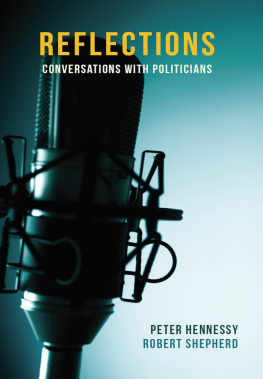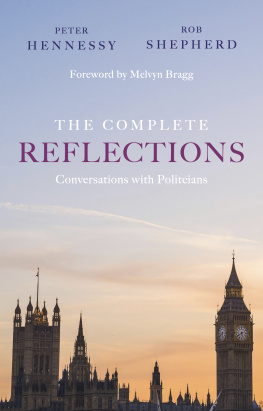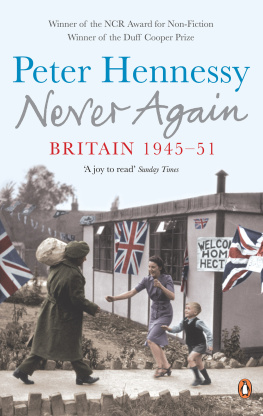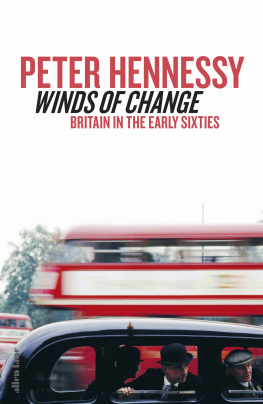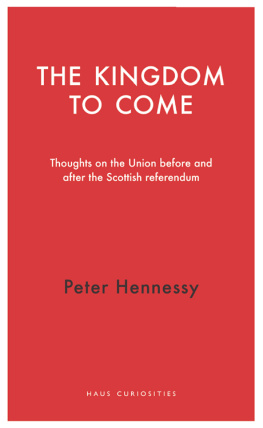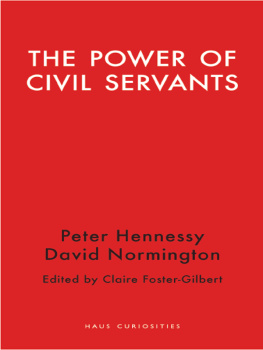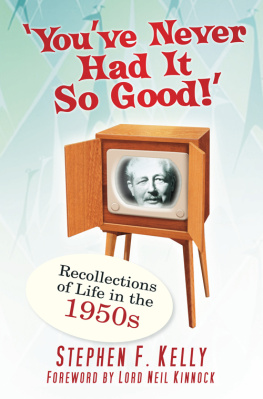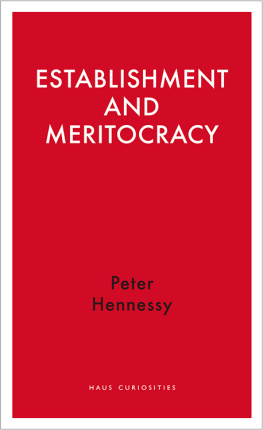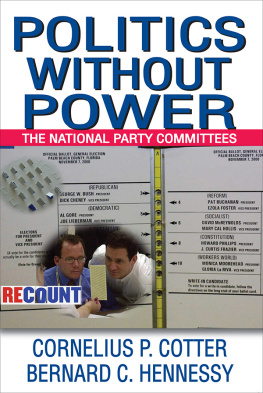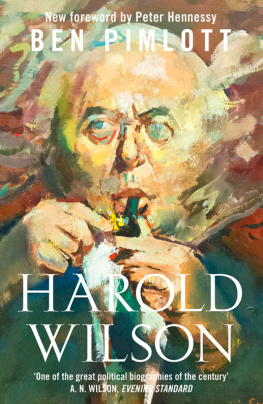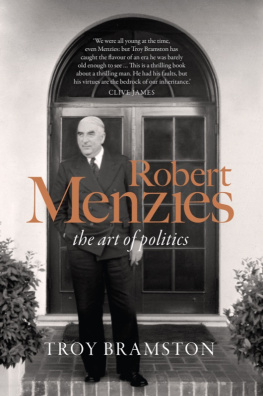Introduction
Peter Hennessy
The art of political interviewing
T he historian, wrote EL Doctorow, will tell you what happened. The novelist will tell you what it felt like. The job of the interviewer is to combine both in the same flight of questioning. It is a craft both intrusive and sensitive, requiring the skills of the inquisitor and the biographer.
In the mid-1980s I took a stab at what I would call combat interviewing of current politicians in a pair of series for Granada Television called Under Fire, a revival of a programme pioneered by Robin Day in the mid-50s. I was wonderfully produced but not altogether at home in the genre, preferring the kind of interviews I was to conduct for 45-minute documentaries as a presenter of the BBC Radio 4 Analysis program.
I am not entirely without aggressive urges but the results of combat interviews can be rather more heat than light and predictable too. If an interviewers style is almost all fast-bowling, interviewees will arrive mentally helmeted, padded up and determined to play endless defensive strokes in the manner of the incomparable Trevor Bailey of Essex and England when I was a boy in the 1950s.
Political interviewing of the non-combat variety came late in life, with three summer series of Reflections on BBC Radio 4, which began in 2013. The idea belongs to the controller of Radio 4, Gwyneth Williams, and it came to her during a discussion over tea at the Cheltenham Literary Festival in October 2012. The idea was a series of reflective conversations with a degree, one hopes, of bite but not bark more an interim biography than an excursion into the combat zone, with the occasional burst of now it can be told revelation. To my great delight I was assigned as producer Rob Shepherd, friend over many years and political biographer of repute. The Reflections interviewees, I warmly wish, will have many more full and happy years ahead of them, hence the interim biographical approach. But there comes a time when a recollective rather than a confrontational conversation is the most fitting and, one hopes, productive approach. Of course, to be candid, there is a feeling, an incentive perhaps, to get the chat in with time to spare. Simon Schama caught it well when he wrote in Dead Certainties:
Historians are left for ever chasing shadows, painfully aware of their inability ever to reconstruct a dead world in its completeness however thorough or revealing their documentation. We are doomed to be forever hailing someone who has just gone around the corner and out of earshot.
The series have been a great pleasure to make, though tinged with a dash of regret that Rob and I didnt start earlier, for Schama-like reasons, in time to catch several of the now-departed post-1945 generation of politicians, some of whom such as Harold Wilson, Jim Callaghan, Roy Jenkins, Quintin Hailsham, Tony Benn and Enoch Powell I spoke to as part of studio discussions for Analysis or in single interviews. Perhaps the greatest challenge would have been a 45-minute conversation with my special political hero, Clem Attlee, for whom brevity was a way of life. I would have run out of questions in five. But how I would have relished it. As for Winston Churchill, it would have been the glorious opposite. I would have been lucky to get four questions in the 45. The stuff of dreams.
Each practitioner comes to the microphone for the first time with ancestral voices and images shaping their approach. Though I did not see the programme as a youngster, political historians and interviewers agree about the broadcast that set the style and tone of interviewing now regarded as standard.
Robin Day himself began his memoir, Grand Inquisitor, with the critical moment that changed the British political cosmology:
The date was Sunday, 23 February 1958. The interview was live. I was sitting in a small studio at Television House, Kingsway, in London. On the other side of the table was the Rt Hon Harold Macmillan MP. TV cameras usually go to Prime Ministers at No 10 Downing Street. On this occasion the Prime Minister had come to the studios, which added to the tension.
The two protagonists were well met, each gifted with their own special histrionics (Days rasping voice; Macmillans Edwardian drawl) and props (Days heavy glasses and spotted bowtie; Macmillans moustache and slightly seedy, though no doubt once quite expensive, drapery). Both were born actors who liked to create little scenes around themselves.
As we waited to begin, wrote Day, the Prime Minister derived considerable amusement from the seating arrangements.
He drily complained that he was sitting on a hard upright seat, whereas I was enthroned behind the table in a comfortable swivel chair with well-padded arms. This, said the Prime Minister, seemed to symbolise the new relationship between politician and TV interviewer I offered to change chairs. But the Prime Minister, keeping up the banter, said, No. I know my place.
It was all over in 13 minutes but it shifted both mens careers on to a different trajectory and set a new standard for the style and tone of political interviewing. There were banner headlines on the front pages next morning. As for Macmillan, his official biographer Alistair Horne called it his first breakthrough as a television personality.
What was novel about the MacmillanDay encounter? It was the first time a British PM had subjected himself to such an deux interview or faced such vigorous questions courteously but not deferentially put.
It was Days line of questioning about the future of Selwyn Lloyd, Macmillans Foreign Secretary, that most excited the newspapers and the political commentariat:
MACMILLAN
Well, I think Mr Selwyn Lloyd is a very good Foreign Secretary and has done his work extremely well. If I didnt think so I would have made a change, but I do not intend to make a change simply as a result of pressure. I dont believe that it is wise. It is not in accordance with my idea of loyalty.
DAY
Is it correct, as reported in one paper, that he would like, in fact, to give up the job of Foreign Secretary?
MACMILLAN
Not at all, except in the sense that everyone would like to give up these appalling burdens which we try and carry.
Day seized the moment with a level of cheek, normal to todays eyes and ears, but shocking by the standards of the 1950s.
DAY
Would you like to give up yours?

